|
Photo- WRBG book club members during a recent meeting via Zoom
If you had told me even two years ago that I would be participating in a book club, let alone heading one up, I would have assumed you didn’t know me very well. On the one hand, it might not seem so odd that I’d be in a book club given I work in the literary industry as a book buyer and author event host for Book Passage. On the other hand, I have always resisted joining book clubs and turned down many invites over the years to participate in them. When asked, I let well-meaning friends and colleagues know that, while I appreciate the invite, I prefer to stay in my book group of one. I want to read what I want to read (or need to read for work) at my own pace. All that changed last fall when I was approached by my boss at Book Passage to consider organizing a chapter of The Well-Read Black Girl book group (WRBG), a book club dedicated to black writers, for our store. Founded by Glory Edem, the club strives to address inequalities and improve communities by reading and reflecting on the works while introducing a cohort of diverse writers to future generations. Although hesitant initially, I quickly relented, knowing full well that as the only person of color on staff, I was the most appropriate to do so. I soon fully embraced the task and began recruiting the few women of color from store patrons, and they invited their friends. Some of them were new acquaintances, some I often had a friendly rapport with over the years, but none of them at that time were what I would call friends. Fast forward several months, and we have gone from a membership of the original three to twelve members. I now consider all of them friends whose opinions on books and whose encouragement with personal life and professional projects are invaluable. You may ask, “What is so remarkable about starting and growing a book club these days, especially when stats show there are five million book club members in the U.S. alone?!” It’s no small feat to have quickly launched and sustained such an endeavor given that Marin County is predominantly white people (80 percent), and less than three percent black people. Reaching out to and enlisting members of the African American and Latinx communities for WRBG, many of whom are busy moms and/or professionals, seemed an uphill battle. We did it, and I’m personally better off for it – now more than ever during a pandemic. I didn’t realize how much I needed this specific type of book group until I had it. Before moving to the Bay Area, I had always resided in either diverse communities or predominantly black communities. Now that I live in Marin and am part of a small minority group, it takes on greater significance to join with those of similar backgrounds. Coupled with a shared passion for stories and connecting during this challenging time, the connection is especially valued. Bridget Anderson, a member of said WRBG club, sympathizes with the sentiment that a book group with a themed focus such as this is very freeing. “Many life experiences are similar. However, people of color share the issues of being discriminated against and constantly needing to traverse the waters with caution. During our WRBG discussions, we’re able to “let our hair down” and discuss the topics without judgment or having to explain. This book club is no more limiting than in what most would deem a “traditional” book club…whose tradition, and what’s limiting?” Bridget AndersonBeyond the collective reading and deep discussions centered around diverse writers and emerging voices, our book club has become a safe haven for communication concerning issues of race and identity. We are all understandably reeling from the death of George Floyd; a black man killed at the knee – literally – of a white police officer in Minneapolis, and the subsequent public rage and protests. Things may be relatively quiet in Marin, with smaller peaceful protests in Marin City and San Rafael than big cities. Still, black residents and the WRBG book club members feel the pain and anger expressed by the larger community worldwide. Instead of moving forward with our scheduled June read and talk of a novel by a LatinX writer, I suggested we postpone those plans and make the space for processing emotions on the current state of affairs. As always, we may all end up sharing ideas regarding topical reading recommendations, but the focus of that day’s meeting will be how did we get to this place, and how can we get through this together. In the end – as is for most book clubs, the actual books, as wonderful and important though they may be – it’s about camaraderie, communication and community. We’re touching lives one book at a time … of late, one crisis at a time. On the topic of race, here are some resources suggested by myself (moderator) and panelists from the "Racism in America: Police Brutality & the Movement for Change" panel event at Book Passage 2020 From #blacklivesmatter to Black Liberation by Keeanga-Yamahtta Taylor White Fragility by Robin DiAngelo Invisible No More: Police Violence Against Black Women and Women of Color by Andrea Ritchie We Live for the We by Dani McClain Invisible Man Got the Whole World Watching by Mychal Denzel Smith We Were Eight Years in Power by Ta Nehisi Coates Real American by Julie Lythcott-Haims
3 Comments
Movies So White:
WHY DO NANCY MEYERS' MOVIES STILL GET MADE?! Like most of us these days, living “InShelter” has led me to way too much exploration through mindless YouTube videos and scrolling through the endless supply of movies on all the usual portals. As such, I bumped into the Nancy Meyers “film” collection, reminding me how much I hate her movies, am offended by her style, and shocked how she manages to get A list actors and still get her projects green lit. Well, it’s probably because she gets A list actors that she also able to get funding. Let’s face it, if you have the likes of Robert DiNero, Meryl Streep, Diane Keaton and Anne Hathaway attached to your films, the producers and money will follow. But back to my issues and offense: For one thing, her writing is over simplistic and predictable … and I don’t mean in an artistic nuanced way, a la Luca Guadaginino (“I am Love,” “Call Me By Your Name”). I mean like simple and boring. Secondly, her sets look like Pottery Barn exploded all over them. Absolutely, her locations and sets, which are always with rich people in mind, are beautiful. In fact, it’s kind of become her trademark- gorgeous brownstones in Brooklyn Heights, sprawling estates in the Hamptons or a middle aged divorced empty nester’s 5-bedroom Spanish revival in Santa Barbara. For the latter, the character portrayed by Streep, hired a contractor to give her a bigger kitchen, etc. although she lived alone. Yes, as design aficionado, I like drooling over some of her sets, and I like Pottery Barn as much as the next person. I even have a few items from there, but having everything from one somewhat expensive furniture store, is overkill and unrealistic. Thirdly, and most importantly, she creates the whitest movies on the planet … or at least west of Scandinavia! The cast are always portraying accomplished, upper middle class white America. A lack of diversity is fine, probably not even noticeable, if you’ve only made one or two films, but she’s directed almost ten films and has been the head writer on almost double that. And all the ones she has been the writer/director on are all white. Of those that she is credited with writing, one had a black person among the cast, actually in the lead. When I say her movies are white, I don’t just mean themes pertaining to white people’s issues or predominately cast or the leads are white. I mean even the supporting cast and extras are all white. I cannot speak to her crews behind the scenes, but I can go out on a limb and guess the landscape there is probably equally uniformity. Also, there was a black waiter in the opening scene of “It’s Complicated,” so I’m not being entirely fair, but you get where I’m going with this. Some of her films were made during the Obama presidential era and post era. Did having the first black president with the most diverse cabinet in the history of the United States not inspire broader themes and casting for Ms. Meyers? No. On one hand, I get it. I’m not expecting Meyers to branch out and direct the “Black Panther” sequels or Lin Manuel Miranda’s “In the Heights.” She’s found a formula that works for her- capturing rom coms to the white affluent middle age and older set. Does that formula completely negate any inclusion of people of color? Maybe the bigger issue here isn’t Meyers’ comfort zone of portraying a restricted demographic, but that her A list cast, producers and studio execs enable her short-sightedness. Overall, although I’m an advocate for diversity and inclusion, personally and professionally, I don’t think Nancy Meyers and her projects are worth watching (although clearly I have despite my disdain), boycotting or expending much energy on. We can be grateful that they have not and never will be award contenders. I do, however, think they’re worth critiquing, discontinuing funding for or at the very least, being the punchline of a comedians joke. Come on, Kathy Griffin, help me out here. - RACE IN AMERICA & the LEAD UP to the 2020 ELECTION -
Believe it or not; like it or not, race and racism are integral to the 2020 presidential election. This not because, unlike in recent past elections, anyone of color is in the running for the high office, but instead because of the current president who has laced his campaign and presidency with divisiveness, hate and racism. In fact, Donal Trump basically launched his bid for presidency on racist rhetoric directed at the then president, Barak Obama. Several years prior to Trumps official campaign launch, he began a campaign of lies against Obama discrediting Obama’s American citizenship and demanding the release of his birth certificate. examination of his birth certificate. This was to denounce the first black president, and to set the tone for what would be the running theme of his campaign’s platform and ultimately, his presidency. He has gone on to publicly insult Muslims and degrade Latino and defend Neo-Nazis. Given the political climate of the last three and a half years, in conjunction with political tactics by the Republican Party over many years, such as gerrymandering and voter suppression, the stage has been set for heated debates on topics. As such, the 2nd Annual “Race in America” special panel event at Book Passage made race and politics the focus of discussion. The event drew in nearly 200 people from the community and beyond. Before things got started, the energy and excitement in the room was palatable. People were and are eager to learn about the hard issues and discuss their everyday application. As the organizer and moderator I came to the platform, literally, armed with information and questions, but also with a normal mix of excitement, pride and nerves. I wanted a big turnout, not for myself, but for the panelists, for the community and for the important issues at hand. I wasn’t disappointed. The event featured a carefully curated and diverse panel of Bay Area writers and agents of change and moderated by journalist and Book Passage host Paula Farmer. Each of the panelists brought their unique insights and expertise to the discussion, which was invaluable. Aya with her roots in activism and determined demeanor, shook us to our core with blunt words of truth and power. Mimi Lok, as a writer with her work with the disenfranchised and marginalized communities, brought the human aspects of racism and the importance of hearing everyone’s stories. Brian Copeland, as always, brought the power of truth, mixed with humor, while the academic panelist, Ian Haney Lopez who is an expert on “coded racism in American politics,” laid out the basic negative elements that led to the current climate. “Once Trump was elected, more analysis (of racist tactics by Republican political leaders) wasn’t enough. I connected with communications specialists with unions, with think tanks, and we ran a two year research project to respond to Trump’s scaremongering, his dog whistle messaging. We tested messages to promote racial fear, economic populism. We tested a new tactic of race-class approach. This is an approach that says the right has weaponized racism against all of us, and only when we come together across racial lines, do we have the political power to stand up to these economic elites, get the good policies we need but also repair the harm done in the name of racism to all of our communities.” This strong opening statement was one of many. Each of the panelists had their own brand of passion, instilling the need for change that we all can contribute. If knowledge is power - and it is - listening to the podcast of this live event, will enlighten, inspire and weaponize. Panelists included … Brian Copeland - Author (“Not a Genuine Black Man”) and comedian Brian Copeland. Aya de Leon - Author (“Side Chick Nation”), political and social justice blogger. Mimi Lok - author (“Last of Her Name”), executive director and editor for Voice of Witness. Ian Haney Lopez - author (“Merge Left”), UC Berkeley law professor and commentator on coded racism in American Politics. To hear the vital and vibrant discussion, go to the podcast on LibroFM/audiobooks/5184389278178? bookstore=bookpassage Toni Morrison was one of, if not the, first writers who’s art, personality and legacy loomed large in my life. She had a distinct writing voice and a unique style. Equally laudable was her bold stance on race and racism that she incorporated in her prose, and often discussed during lectures and when interviewed. Growing up, she, along with, Maya Angelou, were the most prominent black female writers of the time, with my mother referencing them and my teachers including their books in our curriculum. I don’t know that can be said of most schools of the time because Morrison was not included in the official cannon of English letters. One of the benefits of living in Detroit, a predominantly black city, and going to a predominantly black high school, was getting some (not much, but some) exposure to writers of color.
Fast forward to just shy of a new century, and I remember being one of the first of my family and friends to anxiously see the screen adaptation of her renowned book, “Beloved.” Although it was clearly a tough literary venture to navigate and translate, a caution she presented to Oprah Winfrey when signing over the rights, and the results were a bit wanting, I still appreciated the specialness of the endeavor. It was a strong, successful and lone black female producer putting the iconic work of a legendary black writer on the big screen. Whether or not it was a completely successful cinematic venture or not, was secondary to the effort and what it represented. Just a few years later while living in New York, I attended what I think may have been my first book event. It was at the 92nd Street Y and featured Toni Morrison discussing her career and latest book. I was thrilled to witness the interview, showcasing her brilliance and legacy, while her message inspired any and all to tap into their inner creative selves. That, coupled with her affable and endearing, yet formidable presence and the unexpected honor to meet her at the end of long signing line, made for a night to remember. Now older and in a career in which I am gratefully surrounded by authors, publishers and readers, I am afforded the luxury and honor to promote diverse books from emerging and established voices. Although the landscape is still mostly white and often male, it is also wonderfully more inclusive than times past. As such, I continue to recognize the impact of Ms. Morrison. The depth of her literary prowess is immeasurable, and the need for her moral barometer is undeniable. It is because of her we now have access to writers such as Roxane Gay, Tayari Jones, Yaa Gyasi, Zenzi Clemmons, Jesmyn Ward, Ta Nehisi Coates, and Zadie Smith, just to name a few. In other words, the reader, if they choose to, can now inhabit a world that is richer, more layered and refreshingly diverse. In 2015, Roxane Gay interviewed Ms. Morrison for an airline magazine. She ended the interview as she does all her interviews, asking, “What do you like best about your writing?” To which Ms. Morrison, without hesitation, answered that she appreciated being able to “say more and write less, and give the reader more space.” Toni Morrison, REST IN PARADISE. As I am in the throes of organizing an upcoming special panel event on IMMIGRATION IN AMERICA, I am reminded of and emboldened by the success of the last (and first ever) special panel event I did last winter called RACE IN AMERICA. Here's a recap ...
To my utter surprise and delight, close to 150 people packed into the event room of Book Passage in Corte Madera last February (2019) to participate in a timely and important panel discussion event. Unbeknownst to all present, just by being there, they were supporting me and a monumental time in my life, personally and professionally. It was a Sunday, and by a seeming miracle, a dry Sunday- all day no less. Normally, in California, that wouldn’t seem to be such a phenomenon, but in the Bay Area that winter, the season was overwhelmed with rain. We went from several years of a drought, to the winter of 2018-2019 of endless rains. As such, I had to resist thoughts of low audience turnout due to weather. On that one fateful Sunday, we got welcome relief as heavens opened up to blue skies and pleasant temps. Of course, I was well aware that the good weather could also work against me, in that everyone would be taking advantage of the rare break from the rains and stay out hiking, biking and just not being inside. As it turns out, there was something we were all starved for more than a clear, dry day- to talk about the hot button topic of Race in America, present and future. Although I have hosted many book events, involving author introductions and moderating , this was my first time curating an event and moderating a panel discussion. When I presented the project several months earlier for a special panel event evolving around a social issue, I knew it would be no small undertaking and especially daunting given the predominantly white landscape that makes up Marin County, where the event was held. Despite that, I felt a sense of urgency and welcomed the challenged. After securing the date, feeling Black History Month an appropriate time to honor such a discussion, I embarked on selecting the panelists. A stellar and diverse group of talented and wise authors/activists came onboard, thrilled to partake in lending their voices on such a matter at such a pivotal time in our country. I could not have asked for a better mix of people- they all brought real-life insights and experiences on the subject from different perspectives. Below are their brief bios. If you couldn’t attend, check out the video of the event in its entirety by accessing this link. Please like the video and let me know what you thought about the discussion by leaving a comment. https://www.youtube.com/watch?v=YGmZtlba9uU&t=2191s Ingrid Rojas Contreras - was born and raised in Bogotá, Colombia. Her first novel Fruit of the Drunken Tree (Doubleday) is an Indie Next selection, a Barnes & Noble Discover Great New Writers selection, and a New York Times editor's choice. Her essays and short stories have appeared in the New York Times Magazine, Buzzfeed, Nylon, and Guernica, among others. She teaches writing at the University of San Francisco, and works with immigrant high school students as part of a San Francisco Arts Commission initiative bringing writers into public schools. Brian Copeland - is an award-winning actor, comedian, author, playwright, television and radio talk show host based in the San Francisco Bay Area. He began his career in standup at the tender age of 18 performing in comedy venues in San Francisco. n 2004, Copeland debuted his first one-man play, Not a Genuine Black Man at the Marsh in San Francisco. The play explored his childhood experiences as a member of one of the only African American families living in the then 94% white suburb of San Leandro, California. Julie Lythcott Haims - is the New York Times bestselling author of How to Raise an Adult, an anti-helicopter parenting manifesto which gave rise to one of the top TED Talks of 2016, and now has over 4 million views. Her second book is the critically-acclaimed and award-winning prose poetry memoir Real American, which illustrates her experience with racism and her journey toward self-acceptance. A third book on how to be an adult, for young adults, is forthcoming. She is a former corporate lawyer and Stanford dean, and she holds a BA from Stanford, a JD from Harvard, and an MFA in Writing from California College of the Arts. She lives in the San Francisco Bay Area with her partner of over thirty years, their two teenagers, and her mother. R.O. Kwon - writing has appeared in The New York Times, The Guardian, The Paris Review, Buzzfeed, NPR, and elsewhere. She has received fellowships and awards from the National Endowment for the Arts, Yaddo, MacDowell, the Bread Loaf Writers’ Conference, and the Sewanee Writers’ Conference. Born in Seoul, Kwon has lived most of her life in the United States. Kwon’s nationally bestselling first novel, The Incendiaries, is published by Riverhead, and it is being translated into five languages. Named a best book of the year by over forty publications, The Incendiaries was a finalist for the National Book Critics Circle John Leonard Award for Best First Book, Los Angeles Times First Book Prize, and Northern California Independent Booksellers Association Fiction Prize. Another special panel event coming soon to Book Passage and moderated by me - IMMIGRATION IN AMERICA: THE LAW, THE POLITICS, THE REALITY. SUNDAY, SEPT. 22ND at 4PM - Book Passage in Corte Madera What do long road trips, hectic plane flights and basking on the beach have in common? For many people, it’s a good book. Summer is the season most synonymous with reading. Whether it’s having the time to kick back while on vacation, longer sunlit filled days to delve into your favorite genre while on the balcony, or simply making a shift in the type of books you read (keep it lighter, maybe even trashier for summer), more of us are getting our read on in June, July and August. Just recently, a colleague boasted to me that her reading drought was squelched. This after spending a long weekend away from the office and off the grid was she able to plow through a collection of carefully curated book selection. Not long after that conversation, another friend who was packing and preparing for flight across country sent a frantic text asking for book suggestions for her trip. I, of course, had no shortage of suggestions.
Just in time for this great seasonal pastime, numerous critically acclaimed bestsellers and/or indie titles have been released in paperback. This is especially beneficial for the consumer/traveler who doesn’t want to pack a heavier hardbound book. Below is a list (no particular order) of recommended titles. Most of this list include those books recently released in their lighter, more affordable format, but a couple hardbound exception are included. Clearly, they're worth the extra expense and weight.
Enjoy! New York Times photo
It's the day before the Oscars and I'm hearing rumblings of a possible upset in a few key categories. Yep, the year's most creative and enticing film that took the movie industry by storm, Get Out, is said to have gotten last minute momentum among Oscar voters, and has won audience polls worldwide. Although on one hand I'd like to submit my ballot with selections of what I'd like to win or what should win, I'm weak (and broke), voting instead with my money and picking what I believe probably will take Oscar gold. That having been said, I did happily, yet somewhat torn, check the box for Jordan Peele/Get Out for Best Original Script. Because of the Me Too movement guaranteeing a female win in some behind the scenes category, coupled with the impressive directorial debut of Greta Gerwig, I thought she and Lady Bird a lock in this category, but alas it will be Peele and his creative brilliance to prevail at least here. Also, expect this little film that could to take center stage at the Film Independent Spirit Awards the night before. And I am glad! There's no time like now to DIVERSIFY your reading!
Recently, a white co-worker of mine- an especially smart, savvy, liberal, forward thinking colleague- with a voracious appetite for reading, that to narrow the selection, she's taken books by white men out the mix for awhile ... And for Black History Month she's focusing entirely on African-American writers and subject matter. While I commend her for her decision, diversifying (aka focusing (not exclusive, but focus) on minority and women writers) my reading is something I've been implementing for the past couple of years, and it's been true source of enrichment and delight, while also helping to narrow down the selection pool (there are sooo many good books out there!!!!). For this month, I'll feature and rotate brief reviews/ write up on some of my favorites. For now, a short list below should get you shopping, borrowing, swapping and reading ... - UNDERGROUND RAILROAD, novel by Colson Whitehead (just released in PAPERBACK- YAY!) - REAL AMERICAN, memoir by Julie Lythcott Haims (see my full review here) - JUST MERCY, social issue non-fiction by Bryan Stevenson (see my full review here) - AMERICANAH, novel by Chimanamanda Ngozi Adichie - WE WERE EIGHT YEARS IN POWER, politics/social non-fiction by Ta-Nehisi Coates (I can't emphasize enough how powerful and searing this book is. Every black person and every white person should read this!) -I KNOW WHY THE CAGED BIRD SINGS, a classic novel by Maya Angelou (there are some books worth re-visiting) More to come (not a title, just a promise from me). IN PRAISE OF THE GIFT THAT KEEPS GIVING
If ever there was a good year to give the gift of a book, now is it. It’s been a banner year for books released by established, as well as, new writers. If you’re lucky to get your hands on a favored book that’s a signed first edition, even better. I have the honor of working with events for the world’s best and liveliest independent bookstores. And by lively, I do mean a bookstore that is more like a literary outpost with three locations, boasting up to 800 author-related events a year! As such, I get to witness the sheer delight people have in shopping for, selecting, giving and getting books, be they new, used, hardbound, paperback or coffee table. It’s discovering characters and experiencing stories in a new and affordable way. It’s maybe going to the politics and social issues section and stumbling into a hot button topic. Trust me, with the year we’ve all been having, it’s a section with brisk sales and hugely populated events. It’s the area that featured dynamic and insightful books such as “Strangers in Their Own Land: Anger and Mourning on the American Right.” I think the title speaks for itself. Additionally there is “Shattered” about How Hillary Clinton lost the 2016 election to Donald Trump is the riveting story of a sure thing gone off the rails, “We Were Eight Years in Power” by the always provocative Ta-Nehisi Coates, just to list a very few. On the fiction side of things, Zadie Smith’s latest book, “Swing Time” is out in paperback, but there is a host of her younger (not that she’s old) American counterparts that introduced the world to themselves and their talent with stunning debut novels. That includes Brit Bennett with “The Mothers,” Zensi Clemmons with “What We Lose” and “Homegoing” by Yaa Giassi. For those who want a dose of reality, laudable biographies abound. I never thought I’d be much for indulging in memoirs, but thanks to feminist writers like Ariel Levy with her knock out book “Rules Do Not Apply,” “When Breath Becomes Air” by the Dr. Paul Kalanithi, actress Gabrielle Union’s “We’re Going to Need More Wine,” and “Real American” by Julie Lythcott Haims, I’m a believer. All of these deftly combine painful truth, with wit and inspiration. They tackle life issues such as race, abuse, homosexuality, life and death. I could go on and on, but instead I’ll just leave you with yet another selection of suggestions(fancy for “list”) that I hope can be helpful while figuring out that special gift for the pickiest on your list. In addition to the books listed above ... FOR YOUR CONSIDERATION ... Devotion (poems) - Mary Oliver Obama: In Intimate Portrait - Pete Souza Sloutching Towards Bethlehem (special edition) - Joan Didion The Sellout - Paul Beatty (It’s in paperback now, but there are still some signed hardbound copies out there) The Floating World - C. Morgan Babst (a lovely, touching story with the backdrop of hurricane Katrina from an writer that is New Orleans native) Stay With Me - Ayobami Adebayo (unforgettable debut novel set in Nigeria.) Since I launched this website, with particular emphasis on my writing related to film and books, I have been committed to highlighting diversity. Although my personal reads are not exclusive to women and minorities, it does take up the majority of my reading time and it is those groups I choose to review and promote. In an industry with a history of being dominated by white men, it's refreshing to discover new voices and often under-represented stories. Along the way just recently, I have encountered an impressive array of wonderful writers, some new, some seasoned professionals, but all enlightening and inspiring (not to mention envy evoking, with several twenty-something year olds who can boast stunning debut novels).
It is great to know I am not alone in this thirst for the diverse. It’s no secret that representation is a big topic in the bookish community. As it should be. "From hashtags like #WeNeedDiverseBooks, founded by Ellen Oh, to #OwnVoices, founded by Corinne Duyvis, writers, agents, and publishers alike have been spreading awareness of how important it is to not only see an accurate depiction of yourself reflected in books, but to read about marginalized characters WRITTEN BY marginalized people. Books written for us, by us, can help eliminate misconceptions and stereotypes in stories." (Teen Vogue) Please refer to my Book Reviews section to peruse existing titles reviewed. More will soon be added, including books by Ariel Levy ("Rules Do Not Apply"), "What We Lose" by Zinzi Clemmons, and "Homegoing" by Yaa Gyasi, just to name a few. |
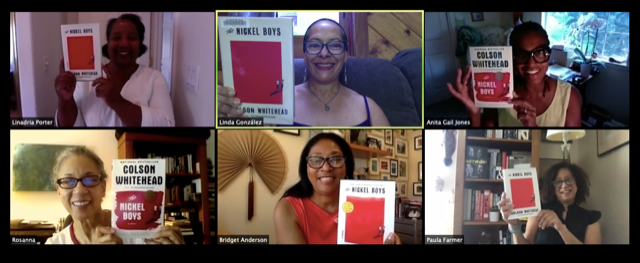

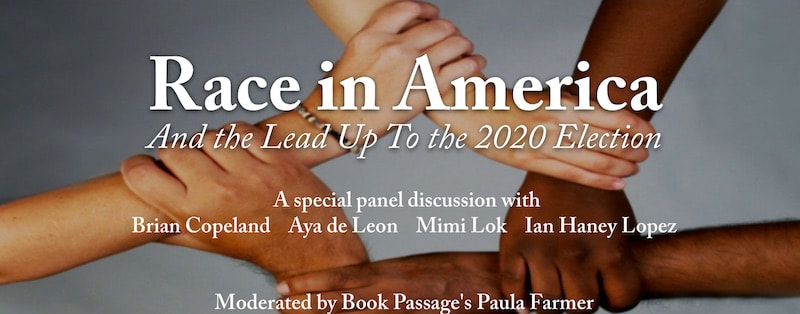
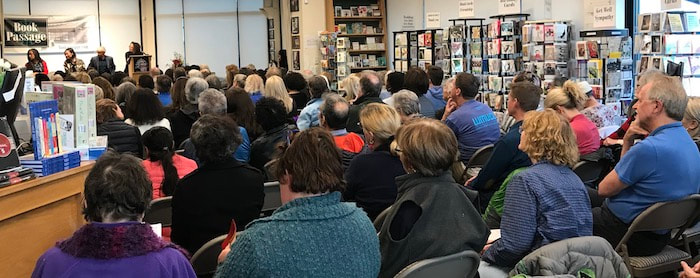
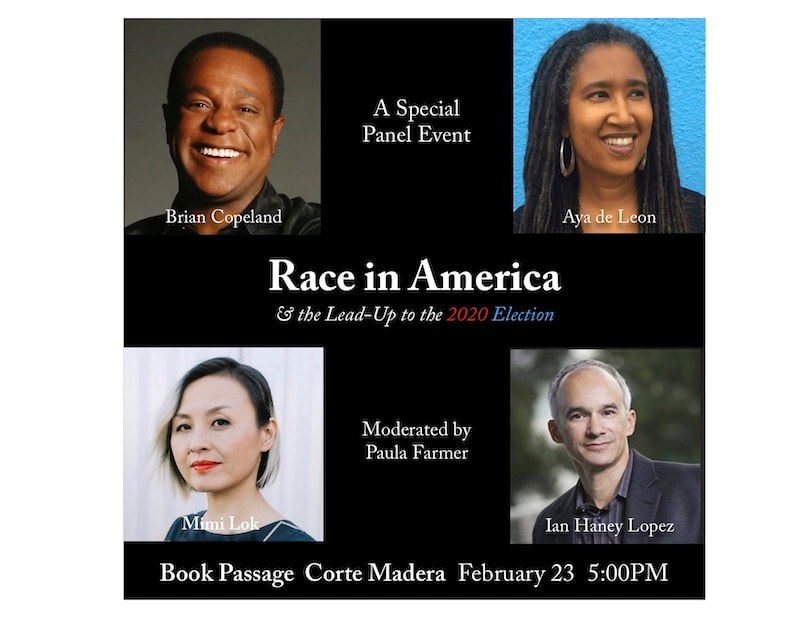
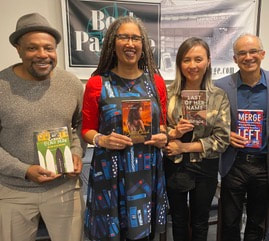

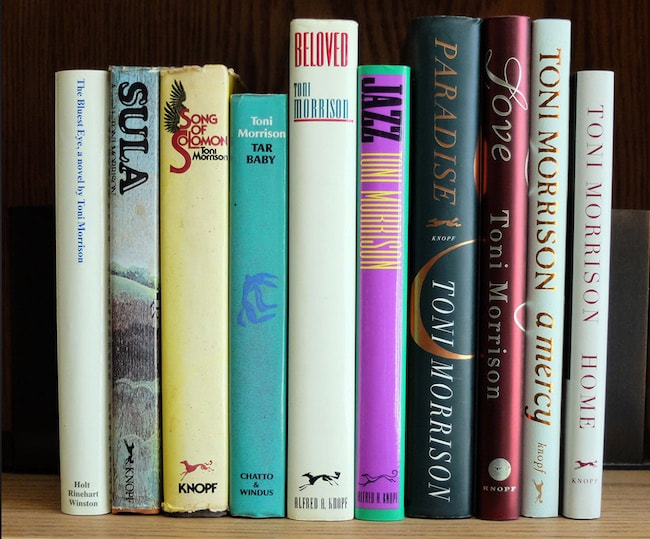
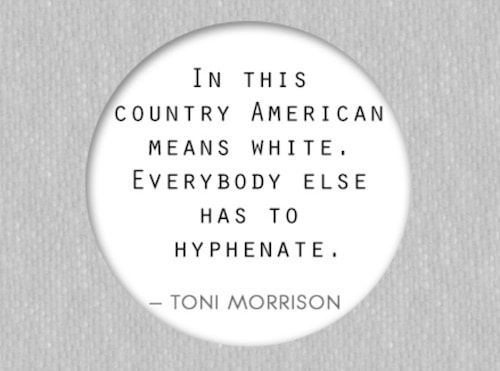
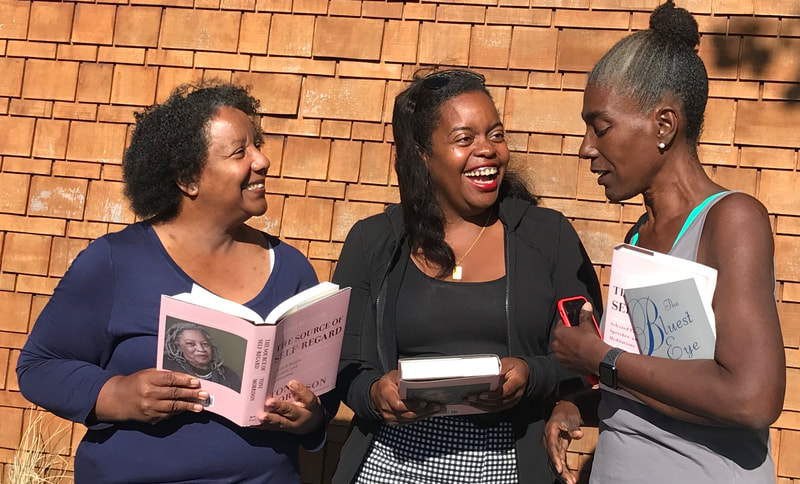
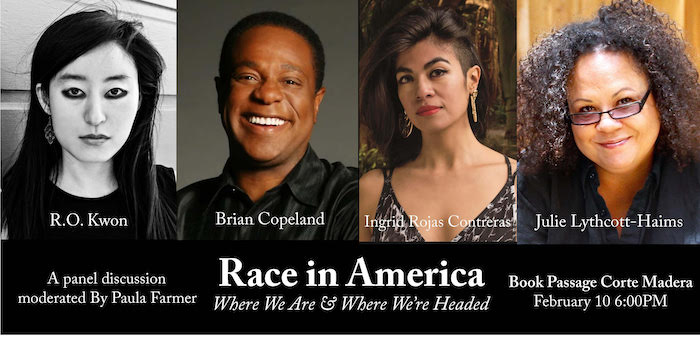
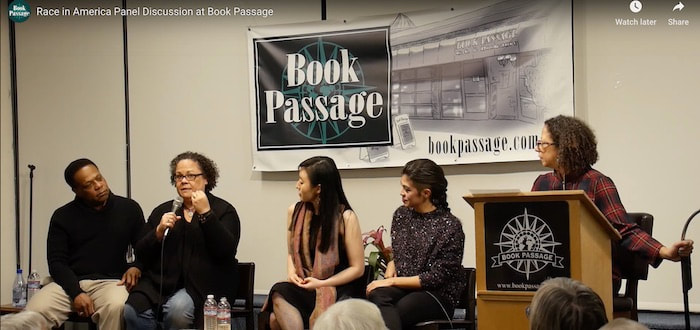
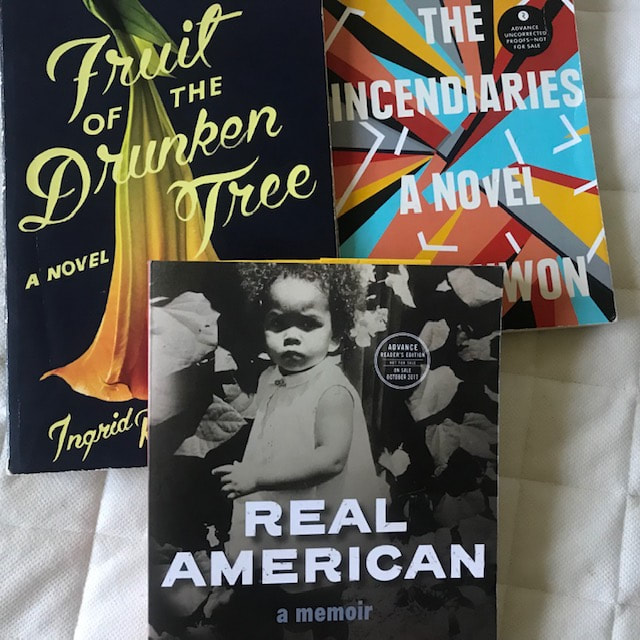
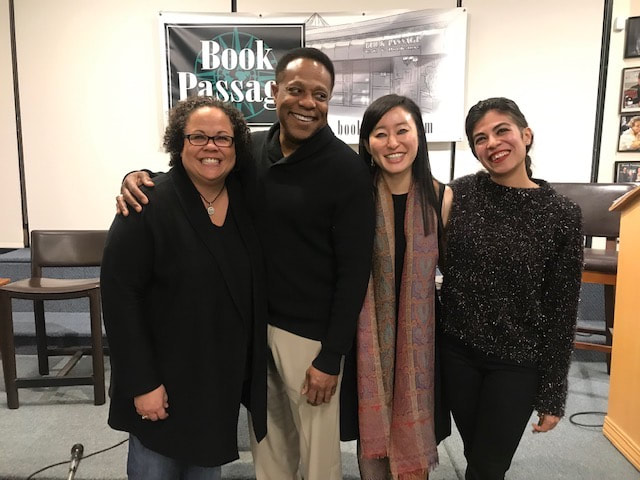
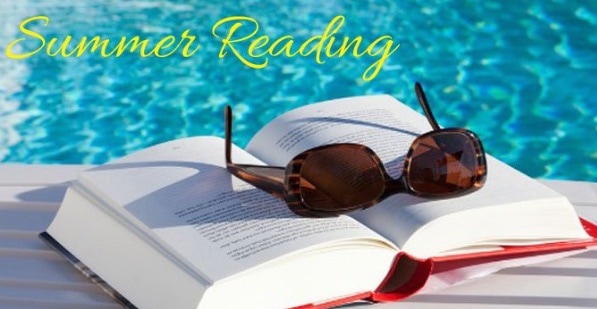
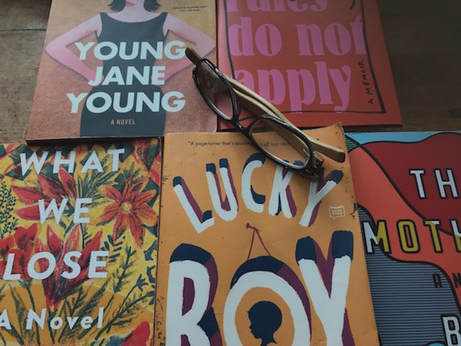
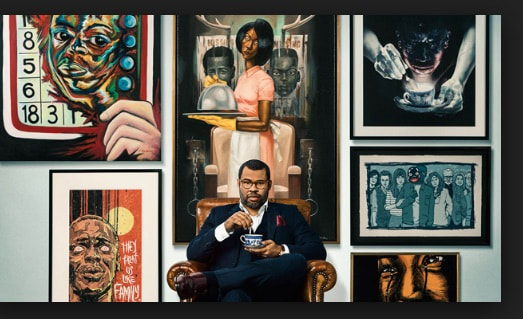
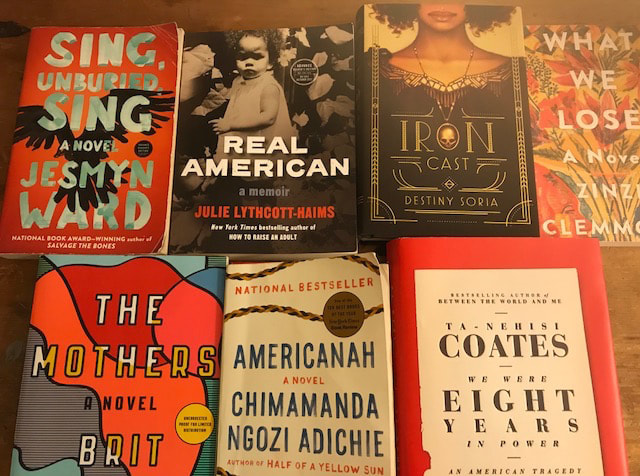
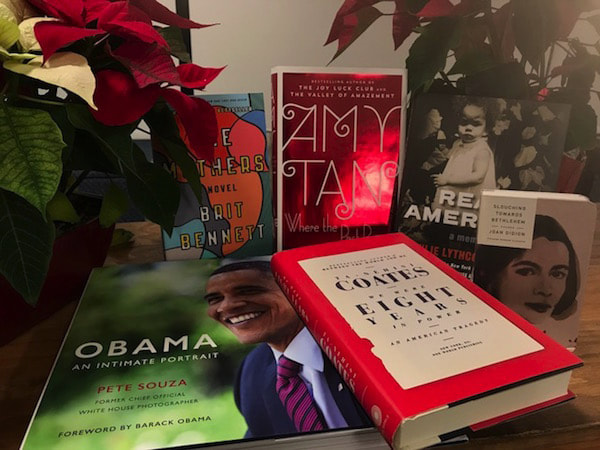

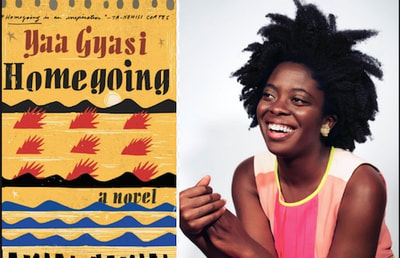

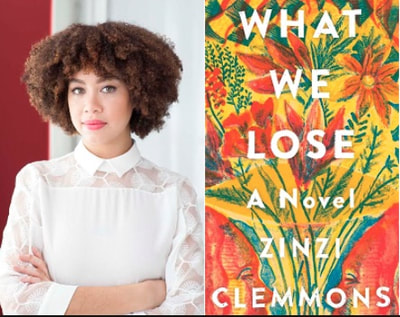
 RSS Feed
RSS Feed